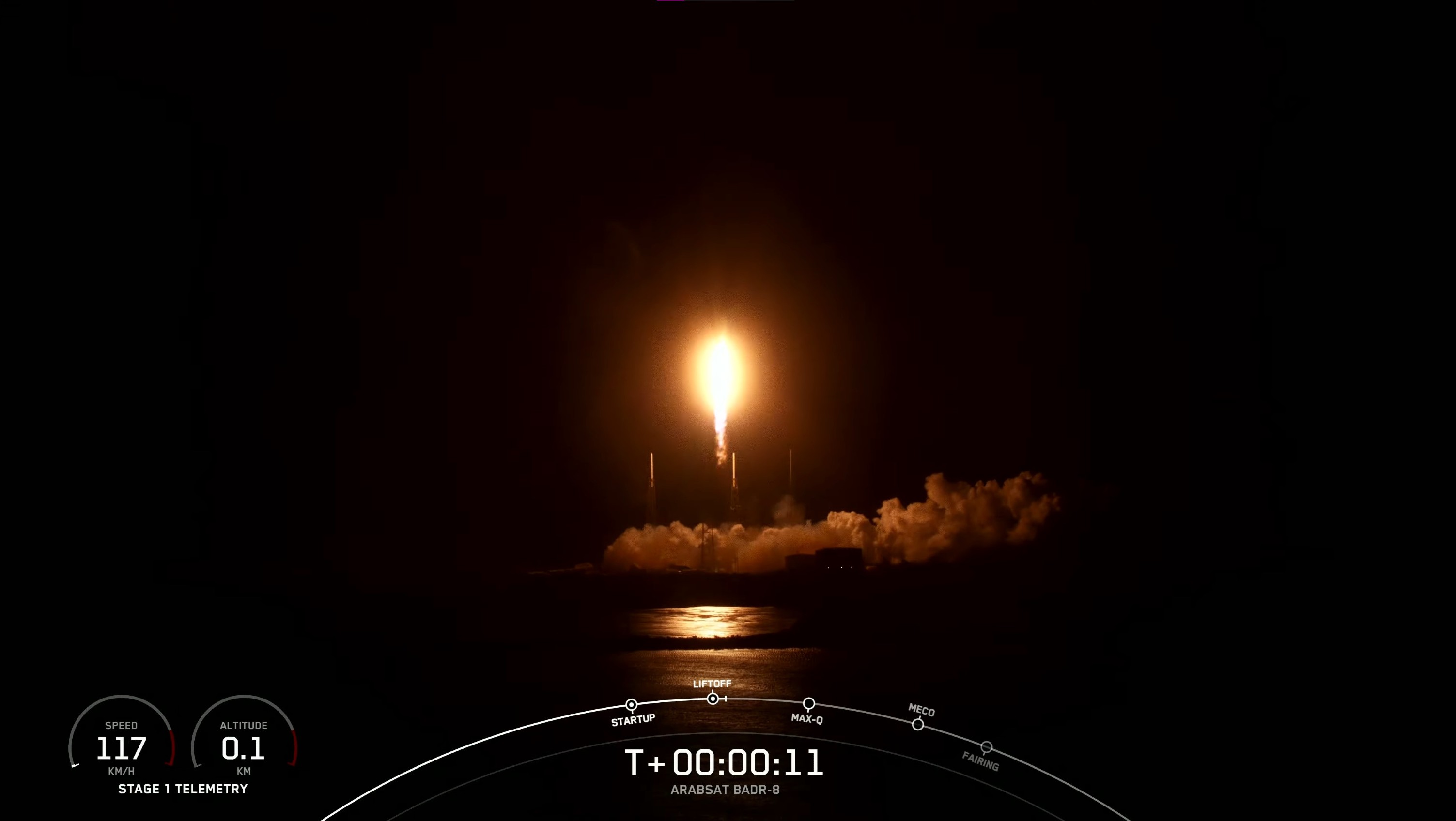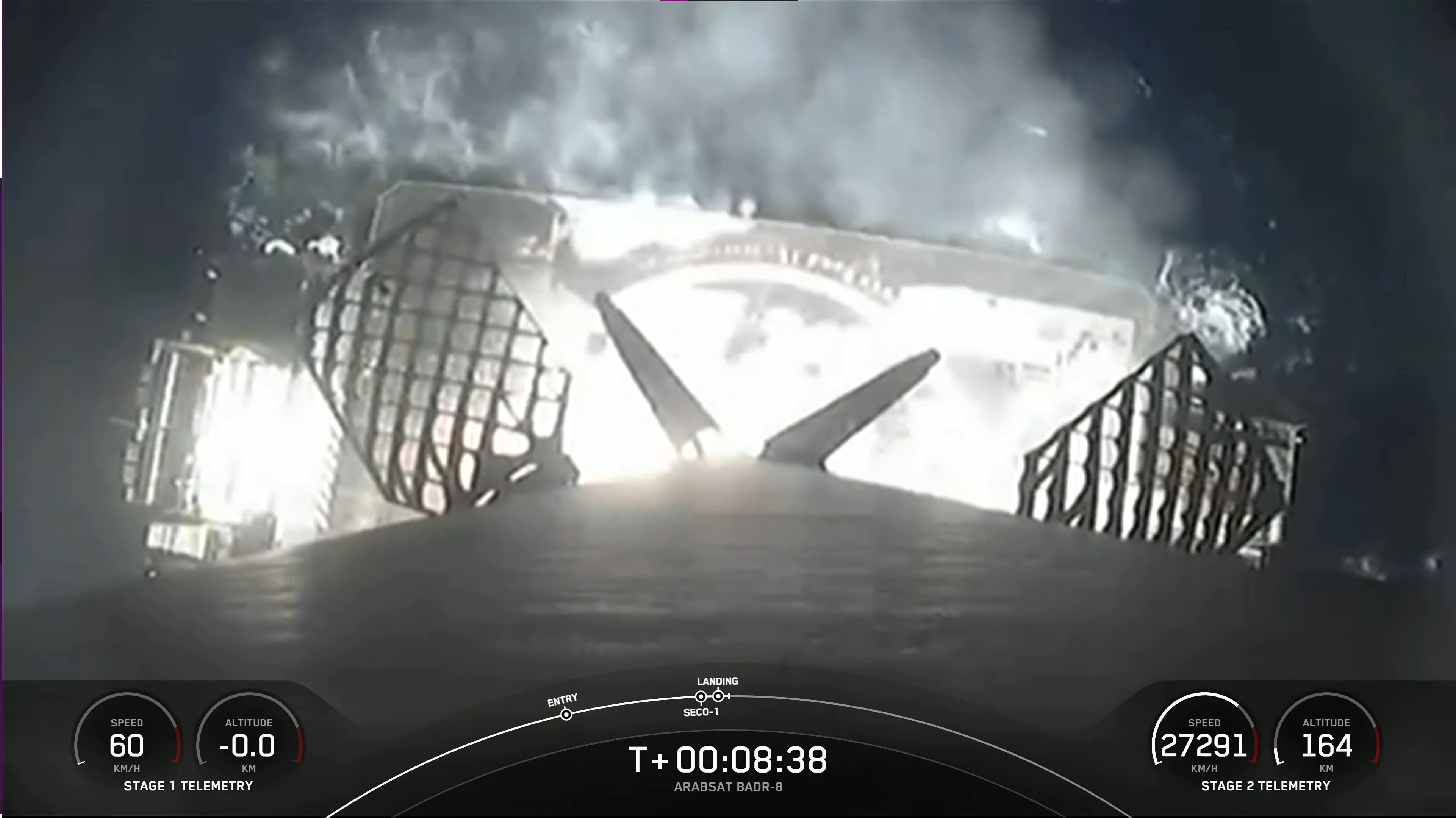SpaceX launched a big telecommunications satellite to orbit early Saturday morning (May 27), moving the company closer to 200 successful landings of their first stage rocket boosters.
A Falcon 9 rocket topped with the Arabsat BADR-8 satellite lifted off from Cape Canaveral Space Force Station in Florida on Saturday morning (May 27) at 12:30 a.m. ET (0430 GMT). The rocket's first stage landed on SpaceX's droneship Just Read the Instructions eight minutes and 46 seconds later.
Tonight's mission marked the 195th successful landing for SpaceX overall between both Falcon 9 and Falcon Heavy rockets, SpaceX's Veronica Foreman said during the launch livestream.
Related: 8 ways that SpaceX has transformed spaceflight

Bad weather forced SpaceX to push two previous attempts of this mission earlier this week. The conditions were much more favorable tonight, leading to a successful nighttime liftoff through the humid skies of Florida's Space Coast.
It was the 14th mission for this particular Falcon 9 first stage, according to a SpaceX mission description. Among those previous flights are two private astronaut missions, September 2021's Inspiration4 and April 2022's Ax-1.

Ax-1, which was operated by Houston-based company Axiom Space, sent four people to the International Space Station for a roughly two-week stay. SpaceX just launched Axiom's second mission, Ax-2, sending its four crewmembers toward the orbiting lab atop a Falcon 9 on Sunday (May 22).
Get the Space.com Newsletter
Breaking space news, the latest updates on rocket launches, skywatching events and more!
Fourteen flights is not a SpaceX reuse record, by the way. The current mark is 15, set last December on a mission that lofted a big batch of the company's Starlink internet satellites.
Arabsat BADR-8 weighs roughly 9,900 pounds (4,500 kilograms), according to EverydayAstronaut.com. The satellite is bound for geostationary orbit, about 22,200 miles (35,700 kilometers) above Earth.
It'll take four to five months for the satellite to reach its operational orbit. Once it's up there and fully checked out, BADR-8 will beam TV broadcasting and other telecom services to central Africa, Europe, and the Middle East for Saudi Arabia-based Arabsat, EverydayAstronaut.com wrote.
Editor's note: This story was updated at 1:30 a.m. EDT on May 24 with news of the scrubbed May 23 attempt.
Join our Space Forums to keep talking space on the latest missions, night sky and more! And if you have a news tip, correction or comment, let us know at: community@space.com.

Michael Wall is a Senior Space Writer with Space.com and joined the team in 2010. He primarily covers exoplanets, spaceflight and military space, but has been known to dabble in the space art beat. His book about the search for alien life, "Out There," was published on Nov. 13, 2018. Before becoming a science writer, Michael worked as a herpetologist and wildlife biologist. He has a Ph.D. in evolutionary biology from the University of Sydney, Australia, a bachelor's degree from the University of Arizona, and a graduate certificate in science writing from the University of California, Santa Cruz. To find out what his latest project is, you can follow Michael on Twitter.









